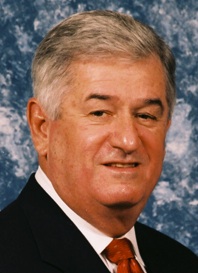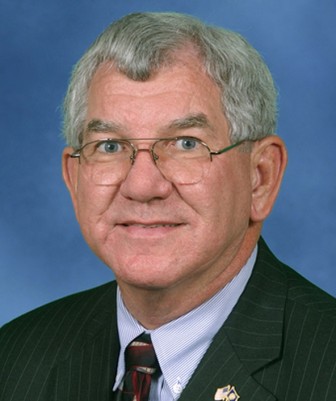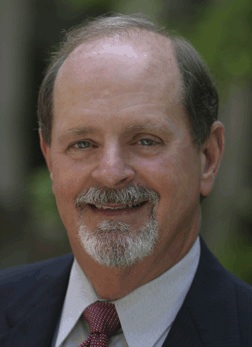The Jindal administration and legislative leaders are quietly planning to solve a vexing problem – how to fill a budget shortfall of nearly $100 million in state health care spending for the poor and uninsured – through an accounting maneuver in the final days of this year’s legislative session.
To do so, however, legislative leaders would break a fiscally conservative promise they made last year to put aside extra money for emergencies.
At issue is how Gov. Bobby Jindal and the Legislature can offset a loss of federal Medicaid money in 2012, a problem they have been grappling with for months. They need an immediate solution because the shortfall is for the fiscal year that ends on June 30.
With two weeks left in the session, their solution for the health care gap has surfaced: plug it with $87 million from a budget surplus for the 2011-12 fiscal year that ended June 30, through Senate Bill 226, by Senate President John Alario, R-Westwego. His bill is scheduled to be heard Monday on the Senate floor.

“Without the money, the poor and needy would get hurt,” Alario said Thursday, stepping off a Capitol elevator briefly to answer a question.
What has prompted concern, however, is that no one in the administration or the legislative leadership has spelled out publicly the solution contained in Alario’s bill. The session is winding down and is scheduled to end on June 6.
“They are jamming the Legislature with little choice since it is too late in the year to cut the budget or identify other revenue,” said Fred Cerise, a former secretary of the Department of Health and Hospitals who was removed by the Jindal administration as Louisiana State University’s chief health care official in August.
The current year’s health care budget shortfall issue has gotten little attention. Legislators and the public have focused on plans to balance next year’s budget, not the one that is nearly over.
SB 226 contains technical language and doesn’t describe its ultimate intent.
The only public airing of Alario’s bill came in a Senate Finance Committee hearing on May 17. The issue came and went in four minutes of technical discussion by Sen. Jack Donahue, R-Mandeville, the committee chairman. During those four minutes, Donahue amended the bill to spend the $87 million to fill the health care gap. No other senators asked questions, and it would have been difficult for anyone who hadn’t been clued-in to understand what was happening. It passed without objection.*
“Do you think when we created the Coastal Restoration Fund, it was meant to be used for money-laundering?” — Rep. Brett Geymann, R-Lake Charles
The intentions of Alario’s bill were discovered Wednesday by state Rep. Lance Harris, R-Alexandria, after he asked a question of his powerful colleague, state Rep. Jim Fannin, D-Jonesboro. Fannin is chairman of the Appropriations Committee, which gives him the lead role in crafting the House’s version of the state budget.

On Wednesday, Harris privately asked Fannin how the administration planned to use the 2011-12 surplus. The state Legislature – at Jindal’s behest – pulled $204 million from the state rainy day fund to balance the 2012-13 budget, and Harris wanted to know if the Legislature would keep its promise to replenish the fund this year if a surplus materialized.
Money from that fund is supposed to be used for budget emergencies, but with Jindal refusing to permit tax increases, and legislators not wanting to make more cuts to health care and higher education, they turned last year to the rainy day fund, whose formal name is the Budget Stabilization Fund. The fund now has $444 million, according to the Division of Administration, which manages the state’s budget.
The bill permitting the raid on the fund passed after it also required the state to replenish the money if the state ended 2011-12 with a surplus – a promise that Donahue and Fannin told colleagues they would keep, in speeches on the House floor.
But on Wednesday, Harris said Fannin told him that the Jindal administration was planning to use the surplus money instead for the health care gap, through a bill sponsored by Alario.
Harris went to the Legislature’s website, found Alario’s bill and quickly deciphered the technical language. The bill would eliminate the requirement that the surplus be put into the rainy day fund and would use an accounting maneuver to make the money available instead for the health care costs.

The bill would transfer the $87 million of the surplus to the state Coastal Protection and Restoration Fund. Since the $87 million is a surplus, it is by definition one-time money that cannot be used on recurring costs – such as the health care spending. So Alario’s bill also would transfer $87 million in recurring money from the coastal fund to the state operating general fund. There, it could be used to fill the state’s health care shortfall.
“I know we’ll need the money,” Harris said in an interview. “I just wish they had told everyone what they were doing. We hadn’t heard anything about the money.”
Harris, chairman of the House Republican delegation, belongs to the group of conservatives popularly known as the Fiscal Hawks. So does state Rep. Brett Geymann, R-Lake Charles, who also objects to the opaque maneuvers.
“Do you think when we created the Coastal Restoration Fund, it was meant to be used for money-laundering?” he asked, before adding: “I fully understand the [budget] dilemma we’re in.”
That dilemma was caused by Congress’ decision in mid-2012 that Louisiana had been receiving more than its legal share in federal money for Medicaid. The change cost the state more than $800 million for the 2012-13 fiscal year.
Rather than make huge cuts that would have meant closing state hospitals, Jindal administration officials in October sought to plug $94 million of the gap with the 2011-12 surplus. State Treasurer John Kennedy and Fannin said they could not do that because last year’s bill mandated that the surplus go into the rainy day fund.
In March, Jerry Phillips, the deputy secretary of the Department of Health and Hospitals, said in an interview that the administration would fill the $94 million health care deficit with money from leases that the state would sign with private companies to manage its hospitals.
Alario’s bill indicates that the administration has returned to the idea of using the surplus money, but at the same time repealing the requirement that the surplus money go into the rainy day fund.
The Jindal administration would make up the difference between the $87 million and the $94 million with two legal settlements, said Michael DiResto, a spokesman for the Division of Administration. He said the division has been saying since October that the Legislature needed to find a solution to the funding gap.
Donahue said the huge loss of federal money caused him to conclude that he had to break last year’s promise to replenish the rainy day fund.
“Our information has changed,” he said in an interview. “I want to give the membership a chance to decide to change its mind.”
Fannin made a similar comment.
“My position is still that it should go into the rainy day unless we give House members the opportunity to vote another way,” he said in an interview. “I’ll lay it out there for folks to decide. I’ll share with folks what the cuts will be.”
Not having that $94 million would mean a total budget hit of $273 million because the $94 million draws $179 million extra in federal funds, Kristy Nichols, the Commissioner of Administration, said in a written statement. She said the administration has already made some cuts to offset the federal money lost last year.
“But it would be irresponsible to move forward on further cuts that are unnecessary when this funding is available,” she said. She said if the surplus isn’t used to shore up health care, “LSU would start looking at hospital closures.”
*Clarification: The story has been updated to make clear that the original bill was amended in committee to shift the surplus, and that the bill was passed out of committee without objection. An earlier version of the story said it moved out of committee without a vote.

